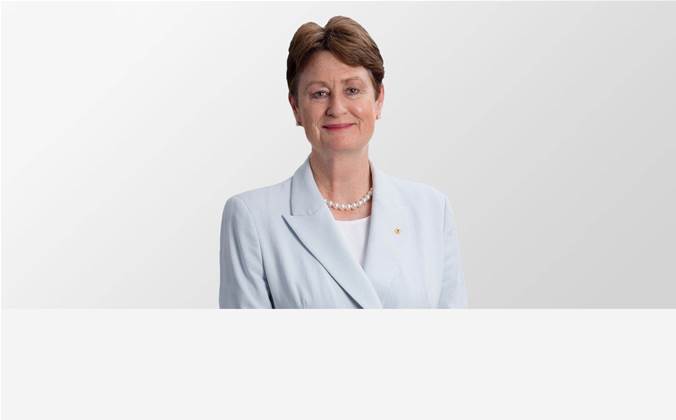When it comes to advisory boards and reviews, Australia might just have reached peak David Thodey.

The NSW Berejiklian government on Monday put on it's glamour parade of corporate, scientific and academic muscle, naming two retail bank chairmen, a swag of vice chancellors and chancellors and national business lobby leaders to its new R&D Advisory Council.
A little light on light on publicity, but hefty in terms of influence, the new advisory group is the state's latest bid harness its bulging coffers to not just secure but weld down bragging rights as leading state for tech and scientific research and development.
It's also a crew with track record of resilience, despatching mediocracy, motherhood and, let's face it, the occasional bank CEO. The new council will advise on how best to accelerate and direct R&D investment in the state and, with any luck, keep rent seekers at bay.
An unkind person might observe there is a deliberate weighting to those who have demonstrated an ability to create lasting wealth, as opposed to just burning through VC funds.
- David Gonski, ANZ Banking Group chairman and champion of educational giving, gets to sit at the top of the table despite also chairing a Melbourne bank, albeit one that has retained its CEO and also broken Westpac's former monopoly as the state's transactional banker.
- Catherine Livingstone, now chairman (yes that's the official listing) of the Commonwealth Bank of Australia also gets a seat after putting Australia's largest institution on a social conscience rehab program that includes a scanner for missed federal benefits.
Clearly there's no hard feelings about missing out to ANZ for on the state's transactional accounts. Or less appetite for lower profit customers. And free Atlassian lessons.
With the NSW government is currently inviting submissions from stakeholders in the research and development space, ranging from universities to industry and start-ups, on how it can support R&D and the commercialisation ecosystem within the state, here's the roll call.
- Parliamentary secretary Gabrielle Upton, Berejiklian's minister assisting, formally gets to appoint the council from leaders across the business, government and the higher-education sector to advise the government.
It's suspected the Member for Vaucluse could also advise where there are discrete waterfront coffee locations unmolested by paparazzi or operatives for Beijing-based short sellers looking for their next unicorn to take to the knackery.
- AirTree's Daniel Petre gets a seat, after all, someone with a sense of how to write a bookie's ticket never goes astray.
- For fans of technical metal, spintronics and valency holes, quantum computing researcher and 2018 Australian of the year Michelle Simmons;
- and NSW chief scientist and engineer Hugh Durrant-Whyte have also been named as members of the first council;
- As has Maxine Brenner board member of Origin Energy, which will be useful when trying to figure out which social media meme Canberra will hang its next energy policy on (or deciphering numbers from Angus Taylor);
- Jillian Broadbent Chancellor of the University of Wollongong and ex RBA board member should add a reality check to thought bubbles;
- As should Barney Glover, Vice Chancellor of Western Sydney University;
- The regions get a voice with Brigid Heywood, Vice Chancellor of the University of New England.
- Mary O’Kane, chair of the NSW Independent Planning Commission, should know rent seekers when she sees them.
- Jennifer Westacott, chief executive of the Business Council of Australia.
- Philip Marcus Clark, veteran legal eagle and serial director.
Of course it's not a bad time to invest in some firepower to convince investors and vendors to sink some cash into NSW, especially as a counterweight to the infrastructure boom.
Premier Gladys Berejiklian said in a statement that along with supporting the economy and jobs creation, improved investments in R&D could lead to improved health and social wellbeing - a timely announcement given the Sydney Morning Herald’s report on the disparity in health outcomes across Sydney’s socio-economic divide.
“R&D in NSW already has strengths in a range of fields, supported by NSW's world class universities and industry, for instance, in advanced manufacturing and in agribusiness,” Berejiklian said.
“Now is the time to step up our efforts and to lead the nation.”
Gonski, in his capacity as chairperson of the council said in a statement that the first meeting was “highly productive”, with insightful and engaging discussions and contributions from the council members”.
The NSW Innovation and Productivity Council’s 2019 scorecard estimates around $11 billion was invested in R&D in NSW last calendar year, equating to around 1.9 percent of gross state product.
Submissions to the council are open until 13 December 2019.


_(23).jpg&h=140&w=231&c=1&s=0)


.png&h=140&w=231&c=1&s=0)



_(26).jpg&w=100&c=1&s=0)

 iTnews Executive Retreat - Security Leaders Edition
iTnews Executive Retreat - Security Leaders Edition












_(1).jpg&h=140&w=231&c=1&s=0)



